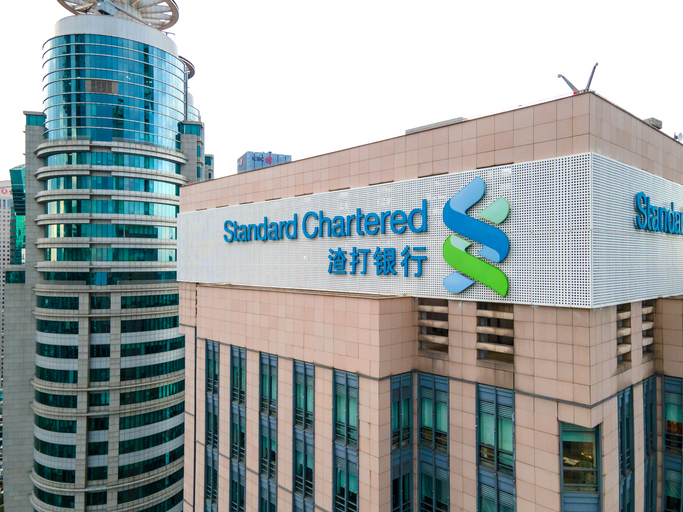ii view: Standard Chartered ponders its dividend policy
Asian-focused bank is making progress despite Hong Kong tension and Covid-19.
29th October 2020 15:49
by Keith Bowman from interactive investor
Asian-focused bank is making progress despite Hong Kong tension and Covid-19.

Third-quarter results to 30 September 2020
- Income down 12% to $3.5 billion (£2.71 billion)
- Underlying profit before tax down 40% to $0.7 billion
- No dividend payment
- Capital cushion or common equity tier 1 ratio of 14.4%
Chief executive Bill Winters said:
"Our transformation is allowing us to weather the macroeconomic storm in good shape. Our Wealth Management and Financial Markets businesses have good momentum, we are controlling costs to fund innovation, and we believe we are well provided against credit impairment. Lower interest rates continue to impact income but we remain well-positioned to meet our financial targets, albeit with some delay. We are further streamlining our organisation to sharpen focus on our retail business, more effectively leverage our unique network, and drive efficiencies."
ii round-up:
An expected delay in meeting profitability targets following the Covid-19 crisis at Asian-focused Standard Chartered (LSE:STAN) bank today outweighed better than forecast results and a potential return to dividend payments.
Standard shares fell by more than 4% in early afternoon UK trading, leaving them down by a half year-to-date. Shares for fellow Asian-focused HSBC (LSE:HSBA) are down around 45% in 2020, while shares for UK-based Lloyds Bank (LSE:LLOY) have fallen by nearly 55%.
The delay in achieving targets echoes comments made at its 2019 full-year results following tensions between Hong Kong and China. A pandemic-focused quarterly bad debt provision of $353 million was up just over a quarter on the provision made this time last year. However, it is down on the $611 million taken in the previous quarter.
Standard operates across 60 countries, mainly in Asia, Africa, the Middle East. Strategic priorities include streamlining operations, embracing digitisation and investing to accelerate growth.
Reduced bad debt provisions helped quarterly profit of $745 million exceeded analyst estimates of a fall nearer to $500 million.
Operationally, ongoing recovery for its wealth management business and momentum in operations geared to financial markets helped offset reduced income because of lower interest rates.
Its capital cushion improved to 14.4% from 14.3% in the prior quarter. Given its strengthening capital position and echoing recent comments made by rivals such as Barclays (LSE:BARC), management plans to review its shareholder returns policy – subject to regulatory consultation - come its February full-year results.
ii view:
Exposure to Asia and the emerging markets left Standard Chartered missing the very worst of the ravages from the financial crisis. But the economic rise of China and ongoing challenges for the US have raised East/West tensions, with Hong Kong becoming the focal point. This is a key market for both Standard Chartered and HSBC, and now Covid-19 has increased pressure further.
For investors, a strengthening of the bank’s capital cushion and contemplated return to shareholder returns offer positives. Ongoing management initiatives and the relative strength of Asian economies compared to other regions are also not to be overlooked.
But with virus cases now back on the rise in many parts of the world, and tensions between China and the US still elevated, some investor caution appears to remain advisable.
Positives:
- Pursuing a transformation plan
- Capital cushion of 14.4% above its 13% to 14% target range
Negatives:
- Uncertain Covid-19 outlook
- Exposure to politically troubled Hong Kong
The average rating of stock market analysts:
'Buy'
These articles are provided for information purposes only. Occasionally, an opinion about whether to buy or sell a specific investment may be provided by third parties. The content is not intended to be a personal recommendation to buy or sell any financial instrument or product, or to adopt any investment strategy as it is not provided based on an assessment of your investing knowledge and experience, your financial situation or your investment objectives. The value of your investments, and the income derived from them, may go down as well as up. You may not get back all the money that you invest. The investments referred to in this article may not be suitable for all investors, and if in doubt, an investor should seek advice from a qualified investment adviser.
Full performance can be found on the company or index summary page on the interactive investor website. Simply click on the company's or index name highlighted in the article.